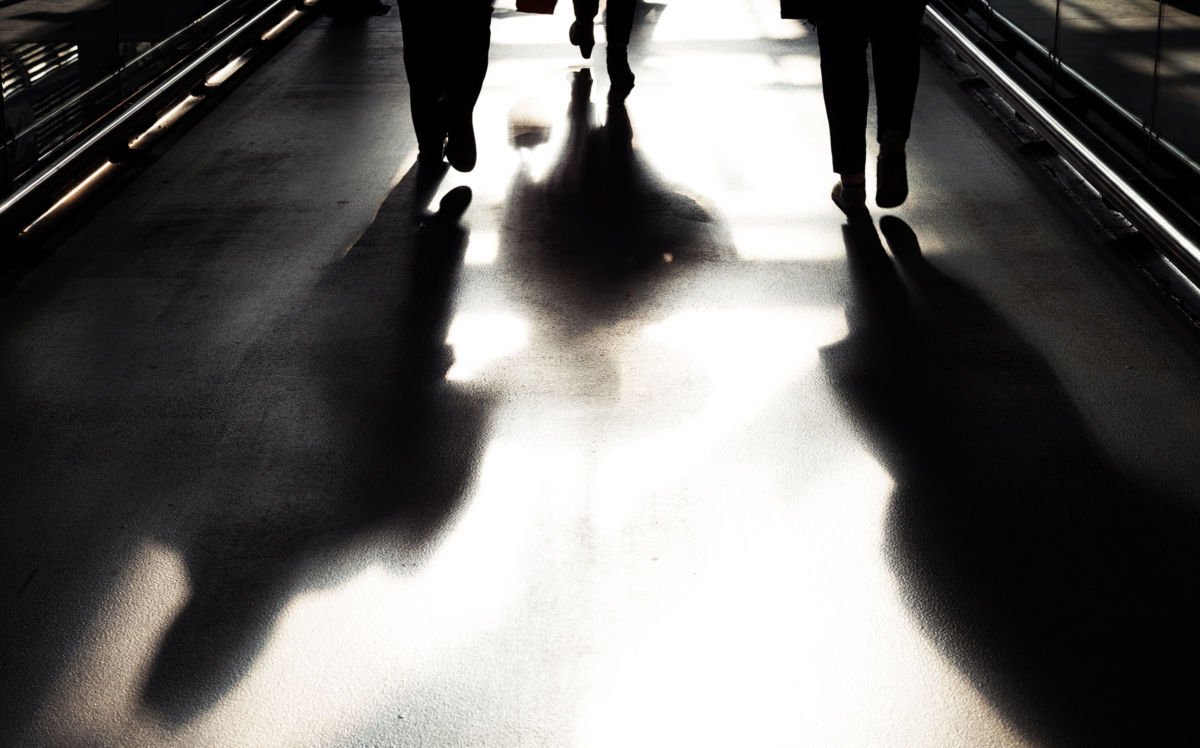I remember Chevy Chase on Saturday Night Live doing the Weekend Update skit. At one point he said, “We have some partial sports scores for you: 24 to 17, 14 to 9, 17 to 12, 21 to 18.”
The scores, of course, are only half the story. Likewise, in reading the letters of Paul we get only half the conversation. We do not have the letters or reports from the churches to Paul. So, we must infer the issues Paul was trying to resolve.
The Corinthians had heard other evangelists; Paul called them “super apostles.” Those men made grandiose claims about their authority and accomplishments. Self-exalting braggadocio was a high art form in the Roman world; humility as a virtue was a Jewish notion, not a Roman or Greek one. It appears that the Corinthian Christians doubted Paul's apostolic credentials because he wouldn't boast about himself. Paul responded that even though he could not match the super apostles’ oratorical skill, he knew what he was talking about.
So Paul wrote back:
I will not brag about myself, except of my weaknesses. I could boast if I wanted without being foolish, for I would be telling the truth. But I won't, so that people won't think better of me than of the Christ who is in my witnessing and living, even though I've been given amazing revelations (2 Cor. 12.5b-7).
Paul replies that he could brag of a great deal if he was so inclined, and all of it true. Then he explains why he won't play that game: It's not about him, it's about Christ. I don't want people to think more highly of me, says Paul, than of Jesus, about whom I witness and for whom I live.

I once heard someone explain a concept that some behavioral psychologists call "shadow agendas." Shadow agendas are the things people devote their time, attention or money to that are hidden from almost everyone they know. Shadow agendas may start innocently enough, but then come to be the true orienting focus of one's life, the purpose of living for which other aspects of life are shuffled to support and conceal. Paul told the Corinthians that he had no shadow agenda. Paul refused to use the Gospel to promote himself, saying, basically, "I refuse to boast about myself because Jesus is more important than I am. I am the messenger, but I am not the message." He won’t use his apostolic mission to promote himself over Christ, to exalt himself using Christ as cover.
Paul continued this way:
That's why, to keep me properly humble, a thorn was given me in the flesh, a messenger of Satan. Three times I prayed to the Lord about this, so that it would not vex me, but he said to me, "My grace is all you need, for my power is perfected in your weakness."
So I will boast all the more gladly about my weaknesses! The power of Christ fills me more strongly because of them. Once I learned this, I stopped letting my weaknesses rule my life – I don’t even pay attention to the insults, hardships, persecutions and setbacks I suffer serving Christ. For my weaknesses are really another way to be strong (2 Corinthians 12.8-10).
The word translated "thorn" also could refer to a sharp stake used for torture, which seems better to fit Paul’s context than thorn. Paul understands this thorn, or stake, has served to keep him humble before God.
Paul doesn’t say what the thorn was. It evidently doesn’t matter; anyone who engages seriously in doing the work of Christ will likely find he or she has one, too. I have come to understand the thorn in the flesh is whatever tends to hinder or damage your effectiveness as a disciple.
I knew a man in Virginia who had come to the unshakable conviction that Christ was raised from the dead and that Christ was Lord of his life. But he stopped growing in faith because of his profane language. He thought that unless he stopped swearing, God would not accept his service, his faith or even his prayers. Another man said in a Sunday School class that he felt the same way about smoking cigarettes. Both these men admitted that they had stopped growing in faith because they felt that their vices, their thorns in the flesh, were so ungodly that all those men did was sort of mark time, waiting for the day when God would remove the thorns, like magic.
But how realistic is it that a disciple's life will have no thorns? That would be like a football player telling the coach, "I'll play football as long as I don't take a hit." The coach might answer, "If you're going to be in the game, you're going to take hits. The only way not to take hits is to sit on the bench."
It is probably overbroad to say that if someone has never felt a thorn in his flesh, then the devil co-opted him or her long ago. But it’s probably not very overbroad to say that. Ranchers don't round up cattle in the corral, they chase the ones running free. In the same way, the devil doesn't chase folks he's already rounded up. He goes after the ones God's got.
Now the devil knows that he's not going to get many Christians to renounce their Christian faith. But tempting us to follow our own shadow agendas instead of Jesus's agenda will do just as well.
I heard a story of four Methodist people – a minister, a Sunday School teacher, a committee chairperson and a church attendee – who were riding in a car together on a two-lane highway. It was raining. As they went around a bend a big truck hit them head on. The next thing they knew, they were standing before Jesus on judgment day.
The pastor winked at the other three and whispered to them, "Piece of cake." He stepped forward and said, "Lord, I was an ordained minister in the church. I preached every week! I consecrated bread and wine and baptized men, women and babies!"
"Lord," the next person said, "I taught Sunday School for twenty years."
"Lord," said the third, "I did a lot of church work and served on committees."
"Lord," said the fourth person, "I went to church on Sundays when I could have stayed home."
And the Lord replied, "Do you think that bullet points on your religious resume would impress me? You, preacher, was the real point of your preaching to make yourself look good to move up to a big-steeple, prestige church or was it to bring people to confess me Lord? You, Sunday School teacher and you, church worker and you, pew sitter – were you just doing religious jobs to hold up an institution, or were you bringing souls to salvation?
"All of you – was your reputation among others the main concern of your church life, or were you willing to look foolish on my behalf? Did you surrender your own desires to my will or did you use me to get your way? Did you trust that my grace was sufficient for your weaknesses or did you use your weaknesses as excuses to keep me at arm's length? Was maintaining your personal religious comfort level most important or did you risk everything you held dear to lead other people to me and my kingdom?
"You know," the Lord continued, "everything about me was out in the open. No secrets. Every teaching I uttered, every miracle I did, every prayer I prayed, every parable I taught, every step I took, the bread I broke, the wine I blessed, the cross I carried, every nail through my body – all had one purpose, completely transparent, out in the open: to show that God loved the world so much that he gave his only Son, and that anyone who believes in him will never perish, but have everlasting life.
"That was my only agenda, and that's all there was to it. I hid nothing. I was born for it, I lived for it, I died for it. And God proved it was true by raising me from the dead. All I asked was that you make me number one in your life. Number one. Not your advisor but your Lord. Not just fit me in when it was convenient or suited you. My requirements of you were very simple: to live for me every day and to tell others about me, to invite them to be with me forever.
"That was my agenda. What was your agenda?"
In Europe there is a cathedral which has following engraved words:
Thus speaketh Christ our Lord to us.
You call Me Master, and obey Me not.
You call Me Light, and see Me not.
You call Me the Way, and walk Me not.
You call Me Life, and live Me not.
You call Me Wise, and follow Me not.
You call Me Fair, and love Me not.
You call Me Rich, and ask Me not.
You call Me Eternal, and seek Me not.
If I condemn thee, blame Me not.
During this Lenten time of spiritual self-examination, each of us should ask, "Do I have a shadow agenda that I use my faith to prop up? What do I want from church – respectability, stability, a place to get my way? Or do I want to learn how to deny myself even to the point of following Jesus to Golgotha? Am I taking hits for Jesus or am I sitting on the bench? Is the devil chasing me because I'm running free for Christ?"
Paul struggled with such questions, so do I and so should we all. Here was his insight: once Paul was honest about his weaknesses, he realized that they didn't really matter to Jesus. The devil at his strongest cannot match Christ at his weakest. "My grace," said the Lord, "is all you need." Our weaknesses are a door into which Christ can pour his grace and overcome them, if only we go ahead and serve God despite our weaknesses. "Once I learned this," said Paul, "I stopped letting my weaknesses rule my life ... For my weaknesses are really another way to be strong."
Perhaps this sounds inspiring, but I find it daunting:
No shadow agendas, only Jesus.
No sitting on the sidelines.
No hiding behind our weaknesses.
In other words - no excuses.
For each one of us and all of us as a church, our questions are:
- Will the grace of Christ penetrate us all the way through?
- Do we want mainly to be known as church people or do we want mainly to live as and lead others to become Jesus' disciples?
"My grace is all you need," said our Lord, "for my power is perfected in your weakness."









